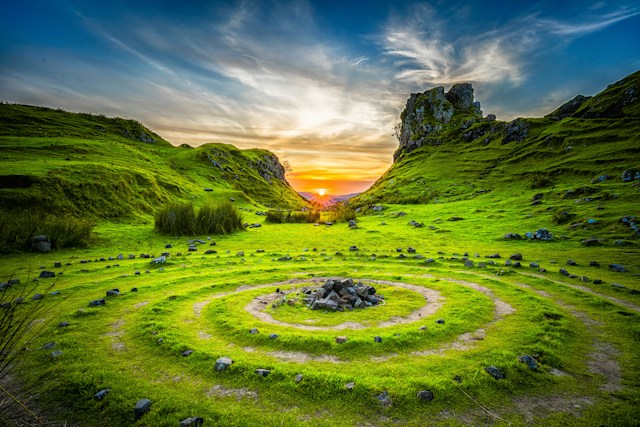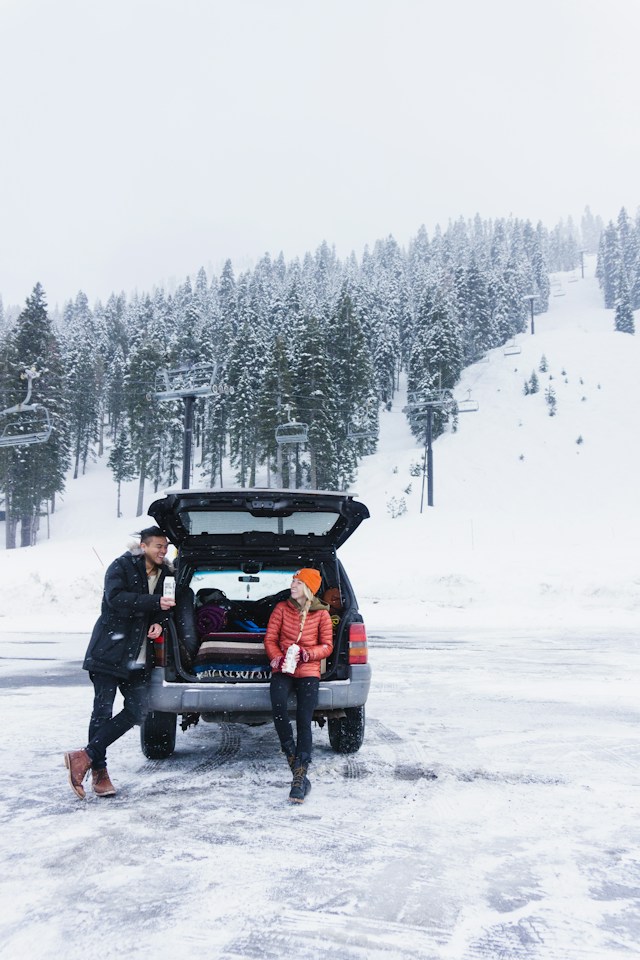Your life will be transformed by the outdoors; you’ll become more content and at ease, have better general health, and have greater relationships. The benefits of being outside would make one of the world’s most potent medications if we could put them into a pill. Sadly, we are unable to turn nature into a medication, yet spending a few hours outside each week can transform your life.
We were always told to play outside when we were kids—when did that enthusiasm go? Why have we lost sight of the importance of outdoor adventure for the next generation? Exploring the outdoors and spending time in nature is like taking a miracle medication; the advantages go beyond physical and mental health to include enhanced creativity, bolstered relationships, and higher productivity. Nature is a potent cure, possibly a universal panacea to the problems of life.
It’s time to head back into the wilderness because it’s both transformative and accessible, and the benefits are just too big to pass up. The advantages of outdoor exploration and travel, including hiking, walking, cycling, touring, and more, are discussed in this article. Come us on this adventure as we explore the myriad ways that environment can improve our health.
How Physical Health Is Improved by Outdoor Exploration
There is a purpose to the relationship between nature and human well-being. Outdoor activities are positively correlated with our physical wellness. Our bodies react to the natural world, whether you’re bicycling, hiking, or traveling the world.
The health of the heart is one major benefit. Walking has been suggested by clinicians for a long time as a preventive and therapeutic measure for patients with cardiovascular disease because, among other advantages, it is a leisurely exercise that lowers blood pressure and blood cholesterol levels and promotes cardiovascular health (Mersy 1991). Walking is a low-impact aerobic activity that is suitable for individuals of most ages and fitness levels because it doesn’t require any specific equipment. Simply put on your walking shoes, hit the trails, and go! No reservations or any planning required!
Exercise frequency is also a major factor in the physical benefits, and multi-day activities like as pilgrimages or backpacking excursions promote frequent movement without excessive strain. There are many health benefits to regular exercise. For example, women who walk more than 7.5 miles a week have higher average bone density throughout their body than women who walk less than 1 mile a week, according to research from the University of Washington (Dawson-Hughes & Krall 1994). Apart from the advantages to your skeleton, climbing, descending, and exploring uneven terrain will strengthen your muscles, increase your endurance, and enhance your balance without putting too much strain on your joints (Bilodeau, 2022).
Since our bodies serve as both our homes and our modes of transportation, taking care of our health must come first. We can benefit physically from physical activities like walking and hiking without having to endure the intense nature of high-intensity strength and conditioning training. The low-impact nature of these activities prevents straining ligaments, tendons, and muscles, unlike the possible stress involved with normal strength training – providing a small risk of damage while encouraging a raised heart rate. Please understand that we are not suggesting that you give up on your regular exercise regimen; rather, we are challenging you to add some outdoor activities to your regimen.
The Advantages of Outdoor Exercise for Mental Wellness
Traveling and outdoor discovery are also crucial for mental health. We need to take care of our mental health because anxiety and depression are on the rise, and nature can support us. Several studies have discovered evidence that physical activity and outdoor experiences might enhance mental well-being; regular outdoor walks, for instance, have been shown to lower the risk of depression and ameliorate symptoms of depression (Jordan, 2016). Exercise also releases dopamine and serotonin, which are feel-good hormones linked to happiness and pleasure. These hormones lower stress levels and improve mental health in general (Heijnen et al., 2015). The feeling of being outside is simply beyond words: “I could never explain why I had such joy when I got to go on a trekking or cycling holiday; all I knew was that I just felt ‘right,’ and was full of happiness and joy.” Campbell Richard.
In recent years, an increasing number of individuals have chosen adventure-based travel destinations. These trips provide a break from the daily grind and encourage participants to fully engage in the moment and celebrate each accomplishment, be it climbing a mountain or enjoying a glass of wine after a tiring day of riding through rural Italy.
There is no denying that being outside and engaging in physical activity can enhance our mental health, even though they cannot cure every illness. Even though they can be demanding and exhausting, outdoor activities are restorative and revitalizing. Richard Campell’s statement, “When I’m on the trail, I have such a simple life,” aptly expresses the feeling. No appointments, emails, meetings, or employment. I simply finish my meal and hike to the next campsite or lodge. It feels fantastic, and I feel utterly rejuvenated having returned from a demanding week-long camping trip.
When we’re out on the trails, we’re not distracted by calls, emails, meetings, or to-do lists; instead, we’re in the moment, appreciating and appreciating the surrounding natural environment. Technology’s ease of use is definitely advantageous, but it may also have negative effects; constantly being connected isn’t always a good thing.
Don’t you think it seems right to be outside? It could be, nevertheless, that engaging in strenuous outdoor activities awakens our instincts. The “biophilia hypothesis,” put forth by a Harvard biology professor in 1984, postulates that people are inherently drawn to bond with other living things and the natural world (Wilson, 1984). Humans are naturally suited to outdoor pursuits like hunting, collecting, exploring, and self-sufficiency.”I grew up on a farm, and there is something that just feels right working hard outdoors,” is an impulse that may help explain the feeling of peace and ease that many of us feel when we are outside. When I consider how humans have evolved over tens of thousands of years to work hard and spend most of their time outside, I find that, at least for me, my body naturally seeks out time spent outside and believes that this is how I am meant to live. (Craig Richard).





Nature can heal everything. When I am in nature, I feel very small, and all the pressure in front of nature is nothing.
Provides some travel options suitable for the elderly
Some suggestions are very suitable for backpackers.
Very creative travel ideas, worth trying.